Related Research Articles
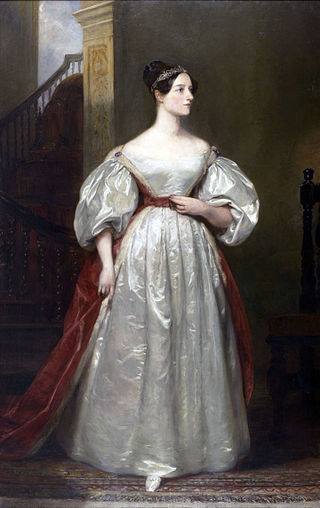
Women in computing were among the first programmers in the early 20th century, and contributed substantially to the industry. As technology and practices altered, the role of women as programmers has changed, and the recorded history of the field has downplayed their achievements.
Donna Auguste is an African-American businesswoman, entrepreneur, and philanthropist. She was the co-founder, along with colleague John Meier, and chief executive officer (CEO) of Freshwater Software from 1996 to 2000. Prior to founding Freshwater Software, Auguste was a senior engineering manager at Apple Computer who helped to coordinate the development of the Newton personal digital assistant (PDA). Additionally, she was the senior director for US West Advanced Technologies, whereabouts she met John Meier and began seriously thinking about the creation of Freshwater Software.

Margaret Elaine Hamilton is an American computer scientist, systems engineer, and business owner. She was director of the Software Engineering Division of the MIT Instrumentation Laboratory, which developed on-board flight software for NASA's Apollo program. She later founded two software companies—Higher Order Software in 1976 and Hamilton Technologies in 1986, both in Cambridge, Massachusetts.
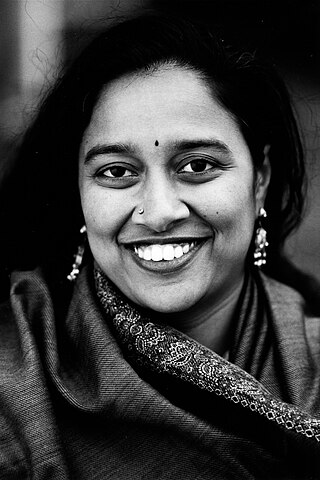
Lakshmi Pratury is an entrepreneur, curator, and speaker. She is the founder and CEO of INK. She also is the host and curator of live events and inktalks.com.
Marita Cheng is the founder of Robogals. She was named the 2012 Young Australian of the Year. She is the founder and current CEO of Aubot, a start-up robotics company. She co-founded Aipoly, an app to assist blind people to recognise objects using their mobile phones. She was named as one of the World's Top 50 women in Technology by Forbes in 2018 and was recognized on the Forbes 30 Under 30 list in 2016. On 9 June 2019, Cheng was appointed a member of the Order of Australia for significant service to science and technology, particularly to robotics.

Krisztina Holly, known by her colleagues as 'Z' is a Hungarian American innovator, entrepreneur, and adventurer.
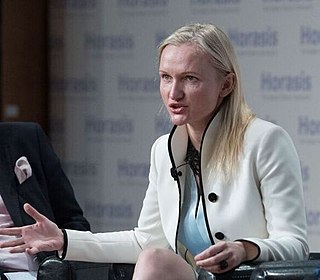
Lila Tretikov is a Russian–American engineer and manager.
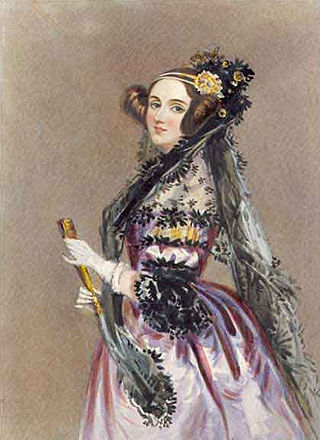
This is a timeline of women in computing. It covers the time when women worked as "human computers" and then as programmers of physical computers. Eventually, women programmers went on to write software, develop Internet technologies and other types of programming. Women have also been involved in computer science, various related types of engineering and computer hardware.
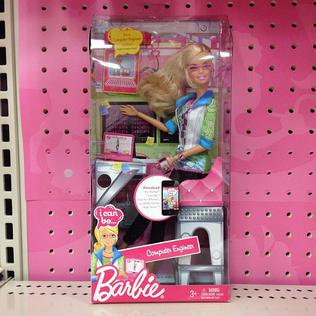
Computer Engineer Barbie is the 126th career version of Mattel's Barbie doll. In response to poll results indicating strong support for computer engineers, the doll set was created and introduced in 2010. In 2014, Mattel apologized for the accompanying book, I Can Be a Computer Engineer, after internet complaints that it represented Barbie as incompetent in the field, needing the help of men.

Tracy Chou is a software engineer and advocate for diversity in technology related fields. She previously worked at Pinterest and Quora with internship experience at Rocket Fuel, Google, and Facebook.
Divya is a software engineer and entrepreneur. Jain has been called a "data doyenne" by Fortune. She is currently a Director of ML at Google. Previously she was the Director of ML at Adobe and prior to that a Data Analysis Engineer at Box Data.

Gender disparity in computing concerns the disparity between the number of men in the field of computing in relation to the lack of women in the field. Originally, computing was seen as a female occupation. As the field evolved, so too did the demographics, and the gender gap shifted from female dominated to male dominated. The believed need for more diversity and an equal gender gap has led to public policy debates regarding gender equality. Many organizations have sought to create initiatives to bring more women into the field of computing.

Karen Smith Catlin is an American tech executive and advocate for inclusive workplaces. She most recently served as a vice president in the Office of the CTO at Adobe Systems. She is a frequent speaker at technology events.

Roma Agrawal is an Indian-British-American chartered structural engineer based in London. She has worked on several major engineering projects, including the Shard. Agrawal is also an author and a diversity campaigner, championing women in engineering.
Carol Elizabeth Reiley is an American business executive, computer scientist, and model. She is a pioneer in teleoperated and autonomous robot systems in surgery, space exploration, disaster rescue, and self-driving cars. Reiley has worked at Intuitive Surgical, Lockheed Martin, and General Electric. She co-founded, invested in, and was president of Drive.ai, and is now CEO of a healthcare startup, a creative advisor for the San Francisco Symphony, and a brand ambassador for Guerlain Cosmetics. She is a published children's book author, the first female engineer on the cover of MAKE magazine, and is ranked by Forbes, Inc, and Quartz as a leading entrepreneur and influential scientist.
Jennifer McGrath Fitzpatrick is an American engineer. One of the first female engineers at Google, she is currently the senior vice president for Google Core Systems & Experiences.
Jenny Griffiths is the founder and CEO of Snap Vision. She is a software engineer turned entrepreneur.
Niniane Wang is an American software engineer and technology executive. In her early career at Google, Wang co-created Google Desktop and created Google Lively. She was previously vice president of engineering of Niantic after her company Evertoon was acquired by Niantic in 2017.
Marina Umaschi Bers is the Augustus Long Professor of Education at Boston College. Bers holds a secondary appointment in Boston College's Department of Computer Science. Bers directs the interdisciplinary DevTech Research Group, which she started in 2001 at Tufts University. Her research involves the design and study of innovative learning technologies to promote children’s positive development. She is known for her work in the field of early childhood computer science with projects of national and international visibility. Bers is the co-creator of the free ScratchJr programming language, used by 35 million children, and the creator of the KIBO robotic kit, which has no screens or keyboards.
Nashlie H. Sephus is an American computer engineer and entrepreneur specialized in machine learning and algorithmic bias identification. She is a technology evangelist at Amazon Web Services. Sephus is cofounder and chief executive officer of Bean Path, a nonprofit startup company developing Jackson Tech District, a planned community and business incubator in Jackson, Mississippi.
References
- 1 2 Pitts, Beth (7 May 2013). "Poornima Vijayashanker: Femgineer & Top Ten Woman to Watch in Tech". The Next Women. Archived from the original on 26 October 2014. Retrieved 27 August 2015.
- ↑ de Lange, Catherine (18 August 2013). "The New Review: Discover: How to Unleash Women's Talent for Tech". The Observer– via Lexis Nexus.
- 1 2 Shah, Semil (24 May 2012). "'In the Studio,' How Bizeebee's Poornima Vijayashanker Fell in Love with Building Software". Tech Crunch. Retrieved 27 August 2015.
- 1 2 3 4 5 "About". Femgineer. Retrieved 4 September 2015.
- ↑ Miller, Claire Cain (17 April 2010). "Out of the Loop in Silicon Valley". The New York Times. Retrieved 27 August 2015.
- ↑ "Mint Team Spotlight - Poornima Vijayashanker". 28 June 2007. Retrieved 28 August 2015.
- ↑ Quinn, Michelle (18 April 2014). "What Women In Tech Do To Thrive". Contra Costa Times– via Lexis Nexus.
- ↑ "4 Tips From Former Founding Engineer at Mint, Founder of BizeeBee and Femgineer: Poornima Vijayashanker". Clarity. Retrieved 28 August 2015.
- ↑ DesMarais, Christina (2013). "Poornima Vijayashanker, Founder & CEO, Bizeebee". Ten Women to Watch in Tech in 2013. Inc.com. Archived from the original on 2013-02-04. Retrieved 27 August 2015.
- ↑ "Taking the Time to Tinker: Poornima Vijayashanker at TEDxNavesink". TEDx Talks. YouTube. 12 June 2014. Retrieved 28 August 2015.
- ↑ Borisoff, Deborah J.; Chesebro, James W. (2011). Communicating Power and Gender. Waveland Press, Inc. p. 90. ISBN 9781577666905.
- ↑ Miller, Claire Cain (4 October 2013). "Curtain Is Rising on a Tech Premiere With (as Usual) a Mostly Male Cast". The New York Times. Retrieved 3 September 2015.